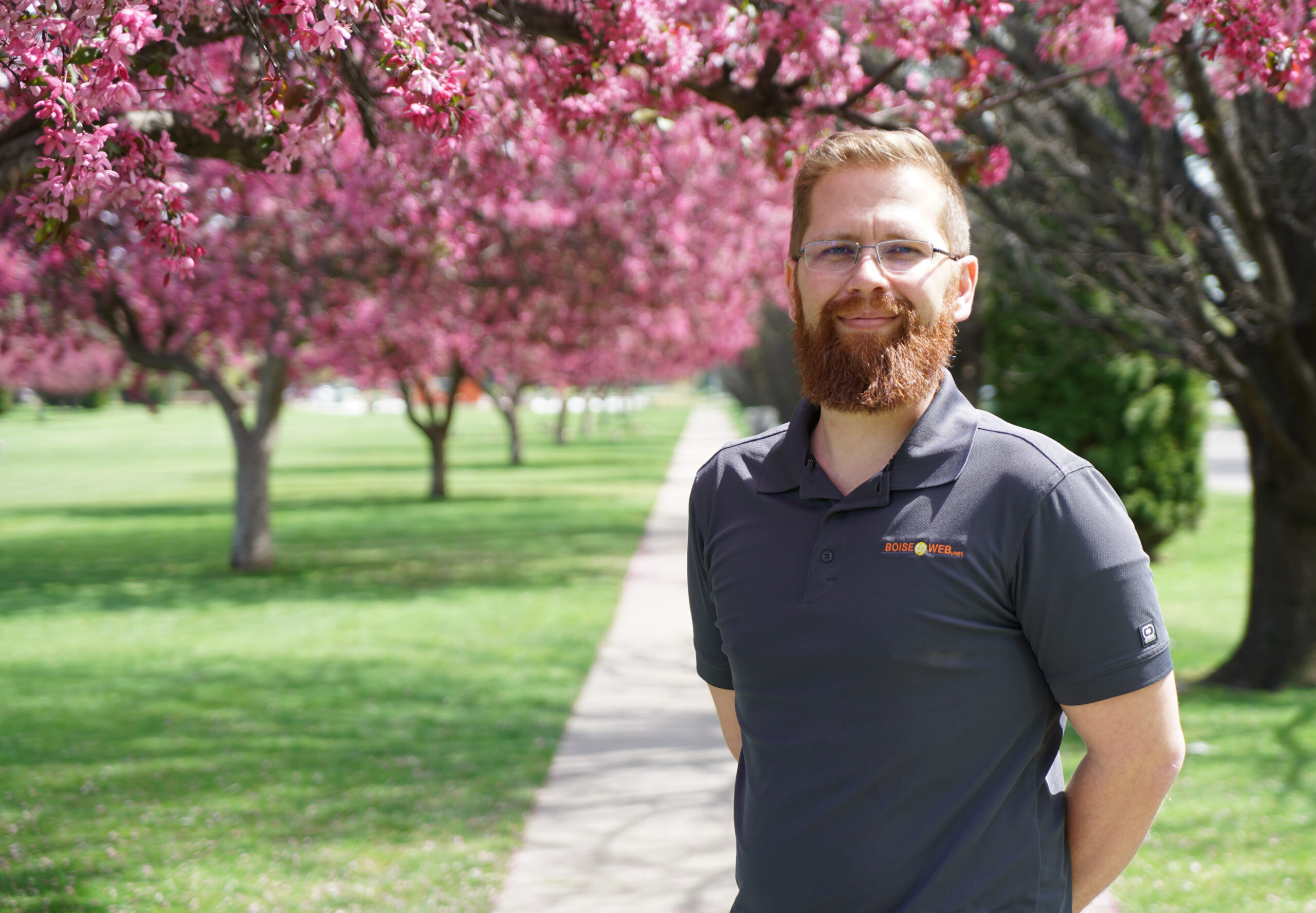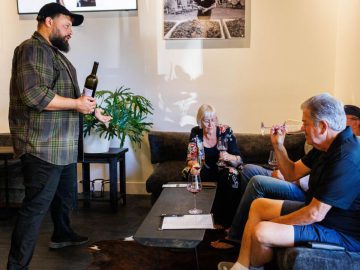Listen to this article
When Jason McKenzie was 11 years old, he started his own lawncare business. At the same time, he began programming on a Pentium 90.
As his business grew, he started to understand the importance of marketing and reaching more customers, which led him to study it in college. He also began to see a correlation between Google search results and businesses acquiring new customers.
McKenzie delved into the technology behind search engine algorithms. Now 39 years old, he has written a book, titled “Small Business, Big Visibility: Local SEO Made Easy,” that teaches businesses how to make the most of search engine optimization, better known as one of the acronyms that has come to nearly rule business operations: SEO.
Specifically, McKenzie focuses on local SEO, helping small businesses reach their local markets.
The author took a break from his business, Boise Web, to speak with Idaho Business Review about the book and what it can teach those who study it.
Idaho Business Review: What prompted you to write this book?
Jason McKenzie: Back in about 2009, I was intrigued to a large degree by search engine optimization, and that was one of my major driving forces. At the same time, I became aware of just how many people in the industry didn’t even understand what that meant. And there was a number of people that came into that industry at that time that were rather scrupulous, and that just always felt really icky to me. For years, I didn’t know what to do about it. And it just bothered me. I see all these small business owners that are struggling every day to really make an impact and to provide for their families, and here comes these companies that will lock them into a contract and take untold sums of money and give them no results. Finally, I realized I’ve got all the knowledge. If I can give that knowledge to these business owners, they can either do it themselves, or at least find someone that has good morals, and we’ll do the actual work because an educated business owner won’t make the mistake of hiring these unscrupulous people. Empowering small business owners to be able to make wise business decisions was really the foundation of what caused me to write the book.
IBR: What was your reasoning to include a workbook at the end of each chapter and not just make it a how-to book?
JM: If a person is busy ― like a business owner is ― they can read, “oh, I need to do X,” and by the time they finish the chapter, they’ll have forgotten most of what they were told they should be doing. By summarizing a short workbook at the end of each chapter, we make sure that we give them the refresher and a little bit of accountability, so that they can check the box and say, “Yes, I did actually do what I’m supposed to.” So, the true goal is to empower them to be successful, not just teach them what they could do to be successful.
IBR: How has SEO changed over the years since you’ve been involved in the industry?
JM: Years ago, SEO largely in the industry, not completely, but largely in the industry, it was a matter of how do we trick the search engines to put us at the top. And in today’s world, the search engines have gotten smart enough that people have finally realized it’s better to be an expert and have authority and build trust than to try and outsmart the search engines, which gives every business the foundation of a great brand. SEO has really become about putting the best brand forward that will resonate with your target audience, rather than trying a bunch of shortsighted tricks that may or may not work or may or may not get you in trouble. It’s been an excellent transition because it helps build better businesses when they are engaged in SEO nowadays.
IBR: Does that help weed out some of the unscrupulous characters that were in the business:
JM: Well, unfortunately, a lot of those characters are still selling the same things that they were back in 2009, which blows my mind, and it causes me to think that this book is more important than ever because they charge more than ever and still give no results.
IBR: What changes did you see in the latest Google algorithm update?
JM: Google is constantly releasing new updates, but the biggest change is Google has tried to figure out how do we deal with this AI content? Back in 2022, they had a statement that said any content that was not written by a human is considered spam by Google, and they have since softened that approach. In 2023, they changed their stance and said, “We now say that any quality content is good.” Now it’s becoming a matter of what is quality content, because it’s certainly not advantageous in Google’s long-term plan to exclude AI content when it does benefit the end consumer. They’ve changed their position and, just recently in March, they started punishing, more strictly, bad AI content. But not punishing good quality content.
IBR: What are some of the biggest mistakes businesses make when it comes to SEO and marketing?
JM: With search engine optimization, people focus on and obsess over the least important things because that is what they’ve often heard they need to worry about. When I wrote the book, I put the most important at the front of the book to the least important, knowing that most business owners only make it halfway through the book anyway. If they make it halfway through the book, they’ve covered the most important information.
There are several things that used to be all the buzzwords. People would throw out words like optimizing your images and optimizing your alt tags and link sculpting and those kinds of things that sound really technical and amazing, but, in fact, if you have a 55-gallon drum and you’re trying to fill it with SEO, it would be like taking an eyedropper and dropping drops in. Whereas some of the core principles can take a big gallon and you’re dumping a gallon and every time you’re doing more.
That would be the biggest mistake that I see in the SEO world.
In the marketing world, one of the biggest mistakes is people don’t take the time to recognize who their ideal customer is. Which means that they don’t take the time to figure out what their customer is thinking and how to communicate with them and where to communicate with them. I’ll oftentimes see businesses that are attempting to do kind of a shotgun approach to marketing where they’re posting a lot of not-helpful information on a number of platforms to try and be everywhere when their customers aren’t there and not looking for them in those places.
IBR: What are some of the biggest challenges that businesses face when trying to get their name in front of consumers?
JM: For many small business owners, the biggest challenge that they face is knowing what to do with the time and resources they have.
IBR: What kind of tips would you give to a small business owner just getting started in SEO?
JM: For a local for local business that serves a local geographic area, the most important thing they can do is set up and fill out completely and maintain their Google business profile. That is more important than having a website in today’s world. This is just because Google is going to pull from that as the as the primary source of information. Now, the website pairs with that perfectly, and Google recognizes that when they have a good website with the same content that is also on the Google business profile. It merges very nicely, and Google gives an additional boost for having that. But step one is to make sure that Google business profile is filled out, complete and up-to-date … with accurate information.





